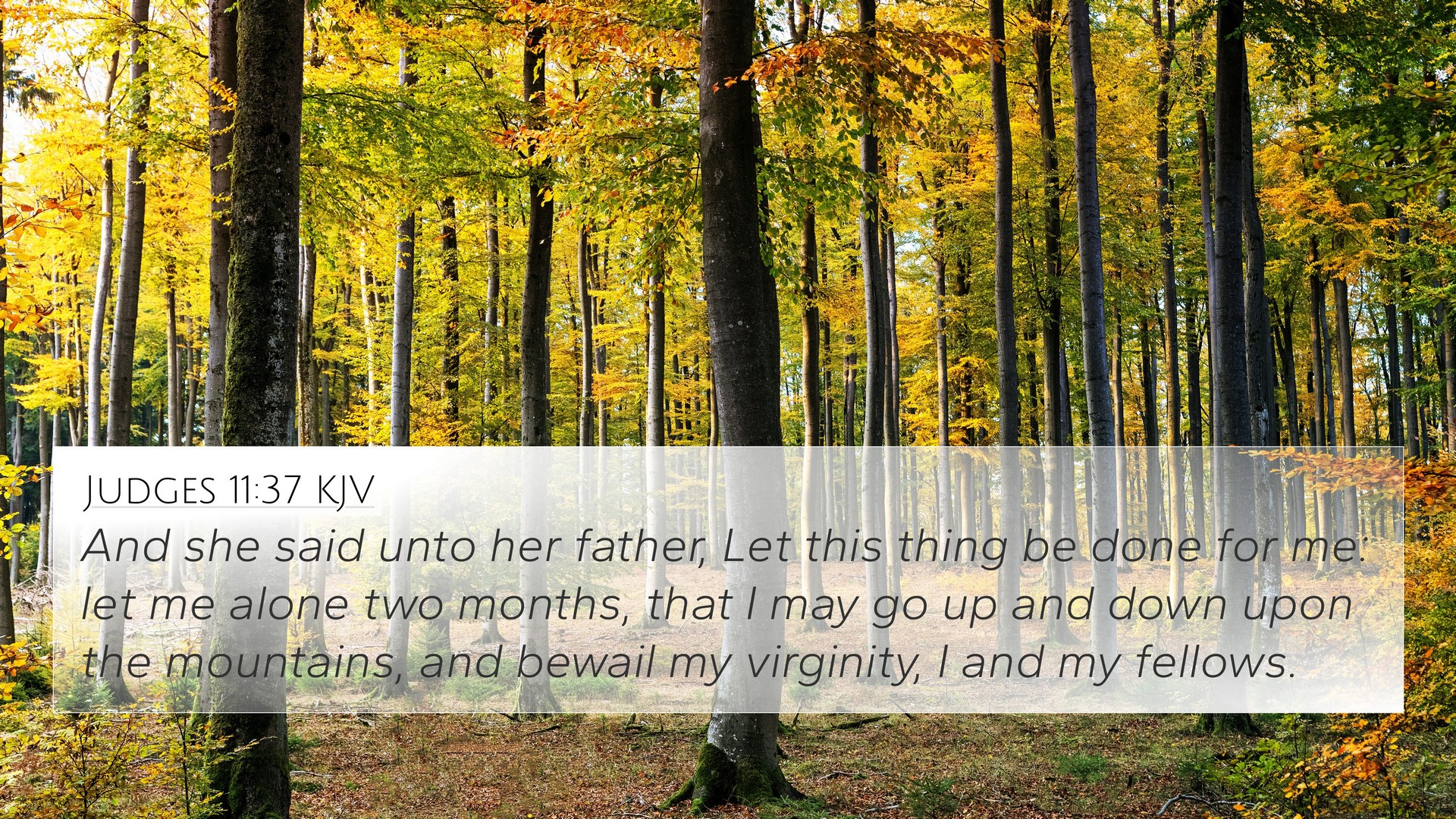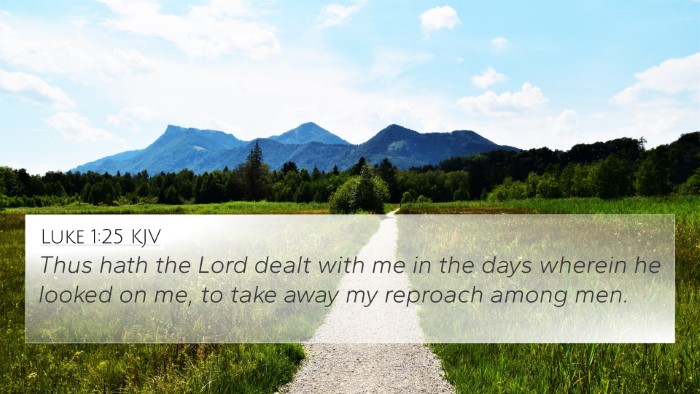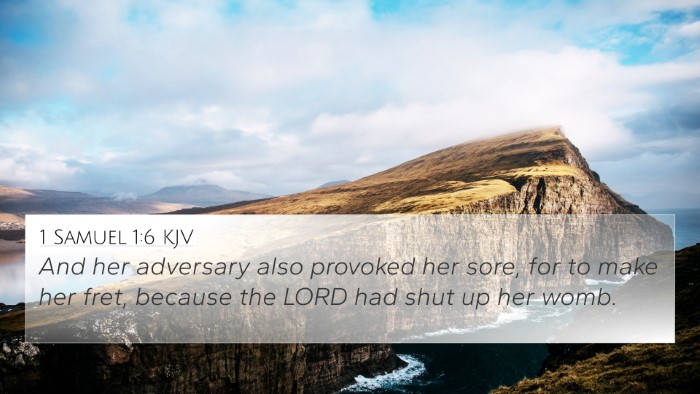Understanding Judges 11:37
Judges 11:37 states:
"And she said unto her father, Let this thing be done for me: let me alone two months, that I may go up and down upon the mountains, and bewail my virginity, I and my fellows."
This verse is part of the narrative surrounding Jephthah’s vow, which is a key moment in the Old Testament that encapsulates themes of sacrifice, commitment, and the consequences of rash promises. Below, we explore the significance of this verse through insights from public domain commentaries.
Insights and Commentary
-
Matthew Henry:
Henry discusses the tragic implications of Jephthah's vow, emphasizing the gravity of making promises without forethought. He notes that the daughter’s request to bewail her virginity reflects the sorrow of losing a future and the burden of her father's vow.
-
Albert Barnes:
Barnes sheds light on the cultural context of the time, explaining that virginity was highly valued. He highlights the daughter's acceptance of her fate, illustrating her faith and loyalty to her father and the Lord. This shows a deep commitment, despite the personal sacrifice involved.
-
Adam Clarke:
Clarke focuses on the emotional aspects of the passage, detailing the relationship between Jephthah and his daughter. He identifies the pain of both characters, noting how the vow leads to unintended consequences that affect the family deeply.
Thematic Reflections
This verse raises several themes that resonate throughout Scripture:
- Consequences of Vows: Jephthah’s rash promise leads to severe consequences, reminding believers of the importance of being careful with their words and commitments.
- Virginity and Sacrifice: The daughter's lamentation underscores the value placed on virginity and the sacrifices made for familial duties and divine devotion.
- Faithfulness in Adversity: Both Jephthah and his daughter display a sense of faithfulness amidst their suffering, reflecting a commitment to God's plan, even when it leads to personal loss.
Bible Verses Related to Judges 11:37
To facilitate a deeper understanding, here are several Bible cross-references that enhance the study of Judges 11:37:
- 1 Samuel 1:11: Hannah's vow and her fulfillment of it reveal the significance of honoring commitments made to God.
- Genesis 22:1-2: Abraham’s willingness to sacrifice Isaac parallels Jephthah’s commitment, illustrating complex themes of faith and sacrifice.
- Luke 14:28-30: Jesus teaches about the importance of counting the cost before making a commitment, a principle echoed in the narrative of Jephthah.
- Proverbs 20:25: This verse cautions against making hasty vows, reminding us of the care one should take with their words.
- Judges 11:30-31: The context of Jephthah's vow itself is crucial to fully understanding the outcome faced in verse 37.
- Romans 12:1: Offers insights on being a living sacrifice, linking the concept of sacrifice seen in Jephthah’s story with New Testament teachings.
- Psalm 15:4: Speaks to the importance of living up to one’s word, further emphasizing the integrity involved in making vows.
Interpreting and Cross-Referencing Judges 11:37
Engaging with this verse allows for a rich study through cross-referencing. Here’s how:
- How to find cross-references in the Bible: Utilize a Bible concordance to identify verses that share themes of vows and sacrifice.
- Cross-reference Bible study: Make use of thematic Bible verse connections, focusing on sacrifice and faith as recurrent motifs in both the Old and New Testaments.
- Connecting Old and New Testament: Identify similarities between Jephthah's vow, the story of Abraham, and the sacrificial teachings of Jesus.
Practical Study Tools
For those looking to delve deeper into Bible cross-reference guides or study methods, consider these tools:
- Bible reference resources: These provide comprehensive lists of related verses to enhance understanding.
- Bible chain references: A method that links verses together based on thematic elements.
- Cross-reference Bible study methods: These encourage a methodical approach to exploring inter-Biblical dialogue.
Conclusion
Judges 11:37 carries profound meaning as it prompts both personal reflection and broader thematic analysis across the Scriptures. Through the insights provided by Matthew Henry, Albert Barnes, and Adam Clarke, as well as the identified connections with other biblical passages, we gain a deeper understanding of the importance of vows and the sacrifices we make in our spiritual journeys.




